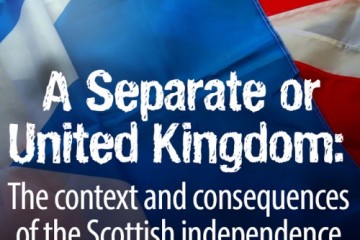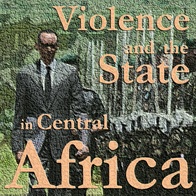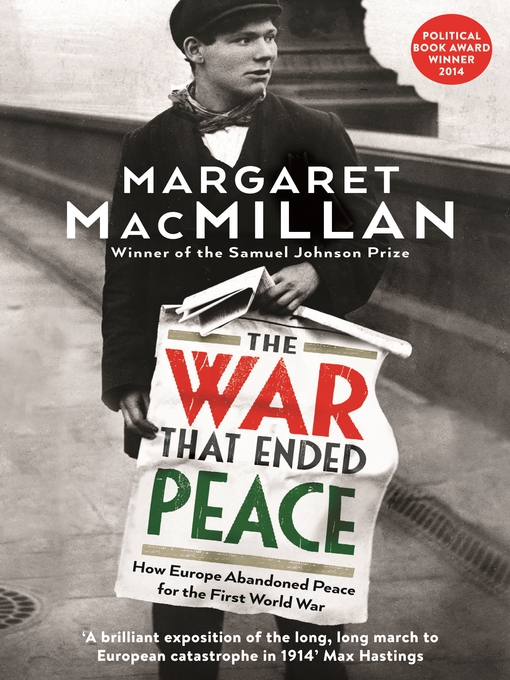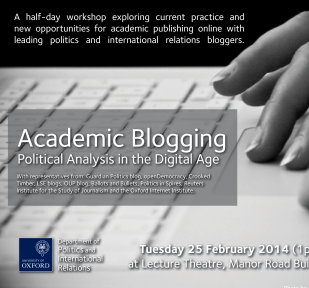
Iain McLean on Scotland, oil revenues, NATO, and the EU
Professor Iain McLean of Nuffield College, Oxford, co-author of Scotland’s Choices, was interviewed by Bloomberg TV about his research which claims that accounting for changes in oil revenues and transfers from the rest of the UK would leave Scots about £480 per person worse off. He also discusses the implications of independence for currency and banking, and Scottish membership of NATO and the EU.

The misguided search for the political – Lois McNay
Max Muir speaks to Lois McNay, Professor of Political Theory at Oxford University and Fellow of Somerville College, about her new book, ‘The Misguided Search for the Political’. She argues that radical democratic theorists, in their search for the abstract essence of politics itself, have ushered in a dangerous silence on the lived experience of inequality and oppression. Without addressing the ‘social weightlessness’ of their theories, these radical democrats find their emancipatory credentials seriously undermined. Max Muir: Hi Lois, thanks for chatting with us. Your new book is called ‘The Misguided Search for the Political’. Why exactly is that search misguided? Lois McNay: The book is a reaction to something we’ve seen over the last twenty or thirty years in …

Iain McLean and Jim Gallagher on Scottish independence
Prof Jim Gallagher and Prof Iain McLean, co-authors of Scotland’s Choices, answer questions about the Scottish independence referendum. They give their views on many of the issues at stake, including citizenship, currency, higher education, and the European Union. Asked to consider a ‘yes’ victory, they explain the complexities of independence negotiations between the Scottish and UK governments.

Violence and the State in Central Africa
This blog takes as its focus the complex and unusual dynamics of violence in Central Africa. Although sometimes unfairly written off as a region of intractable conflict, kleptocratic big men, and hopelessly poor levels of governance, many regional experts now argue that Central Africa is undergoing a period of profound transition. Are the ‘Illiberal Statebuilders’ of Paul Kagame and Yoweri Museveni heralds of a new period of robust and durable state formation? Or merely the newest generation of patrimonial caretakers for states in terminal decline? Is the defeat of the M23 mutiny in Eastern Congo the last rebellion, or just the latest? And how has their defeat reshaped the social and political map of the region? We wish to give …

A Separate or United Kingdom: The context and consequences of the independence referendum
This blog series analyses the issues surrounding Scotland’s impending referendum on independence. The series attempts to shed light on why the referendum is taking place, the context and substance of the debate, and the implications of either a yes or no vote. The prospect of splitting up the British state after more than three-hundred years of voluntary union represents one of the most dramatic developments in the history of the United Kingdom. The popular and scholarly debate has become increasingly sophisticated in recent months, but attention remains excessively directed to short-term economic concerns. A wider comparative frame is essential to understanding the referendum, which will have both international and domestic implications. The blog aims to draw from across the social …

Interview with Margaret MacMillan: The War That Ended Peace
Margaret Macmillan, Professor of International History at the University of Oxford and Warden of St Anthony’s College, discusses her new book ‘The War That Ended Peace’ with DPhil student Katharine Brooks. The book is a re-examination of the causes of World War One and seeks to answer the question of why the long peace preceding 1914 failed to hold. Katharine asks what Professor Macmillan felt she has been able to add to our understandings of World War One, what parallels can be drawn from 1914 to 2014 and why academia still fails to come to an agreement on the causes of this most important of world events.

New issue of St Anthony’s International Review
St Antony’s International Review (STAIR) is proud to announce the publication of its 19th issue, “Thinking Beyond the State: Emerging Perspectives on Global Justice”. The launch event will take place on 17th June 2014 at 5 p.m. in the Department for Politics and International Relations at the University of Oxford. More information on the event can be found here.
In this issue, we ask, how should processes of neoliberal globalisation make us think about global justice beyond the state? There are broadly two possible approaches to this question. First, we might turn from the state to supra-national state institutions. Second, we might think beyond state institutions as such. The academic global justice debate has tended to focus on the first approach. With this issue we intend to broaden the debate by taking seriously the potential of non-statist political and social movements to address global injustices.

‘Academic Blogging: Political Analysis in the Digital Age’
'Academic Blogging: Political Analysis in the Digital Age'
Play Episode
Pause Episode
Mute/Unmute Episode
Rewind 10 Seconds
1x
Fast Forward 30 seconds
00:00
/
Subscribe
Share
RSS Feed
Share
Link
Embed
Download file | Play in new windowOn Tuesday 25 February, the Department of Politics and International Relations hosted an event on the subject of ‘Academic Blogging: Political Analysis in the Digital Age’. Blogging is becoming an increasingly important aspect of academic life – a way to increase academic output, reach new audiences and foster original debates. This event was an opportunity to learn about the world of academic blogging, understand current trends, and gain insight and advice from the experts.










